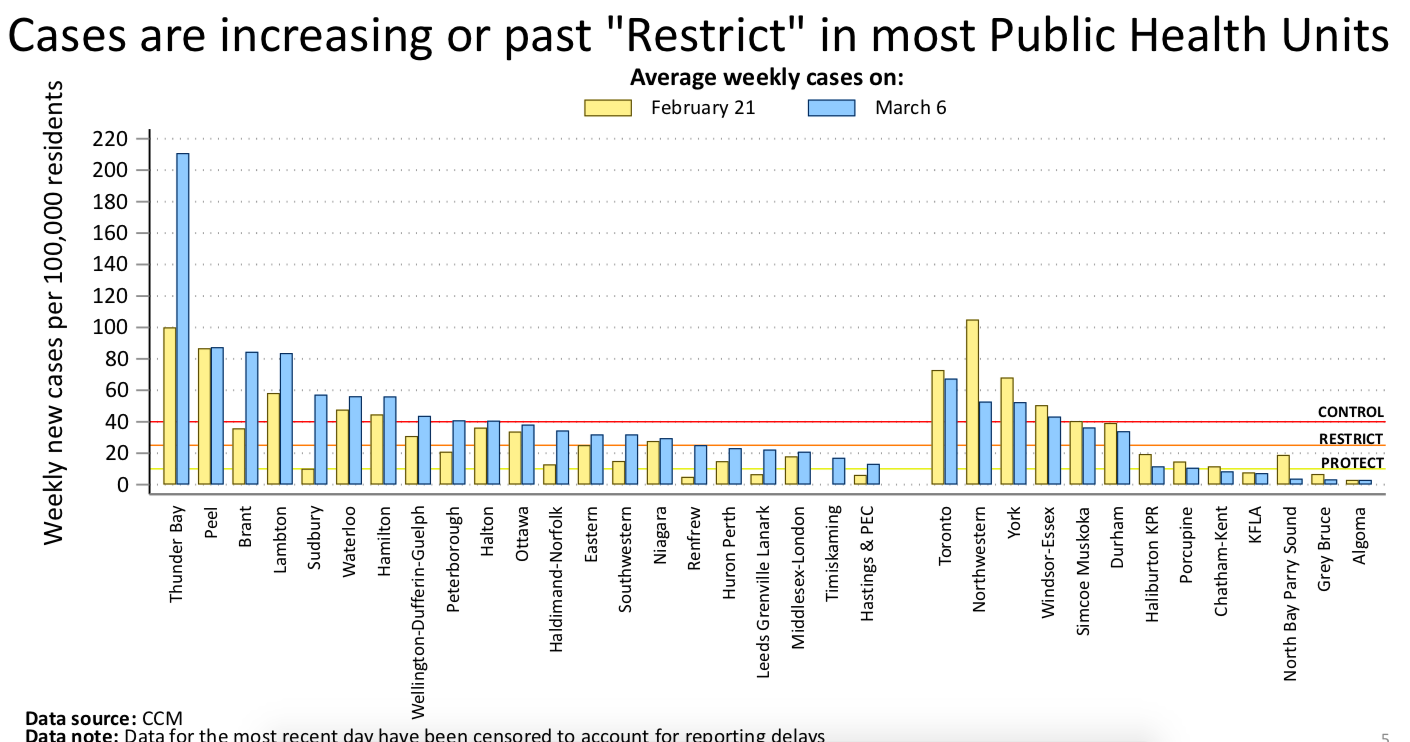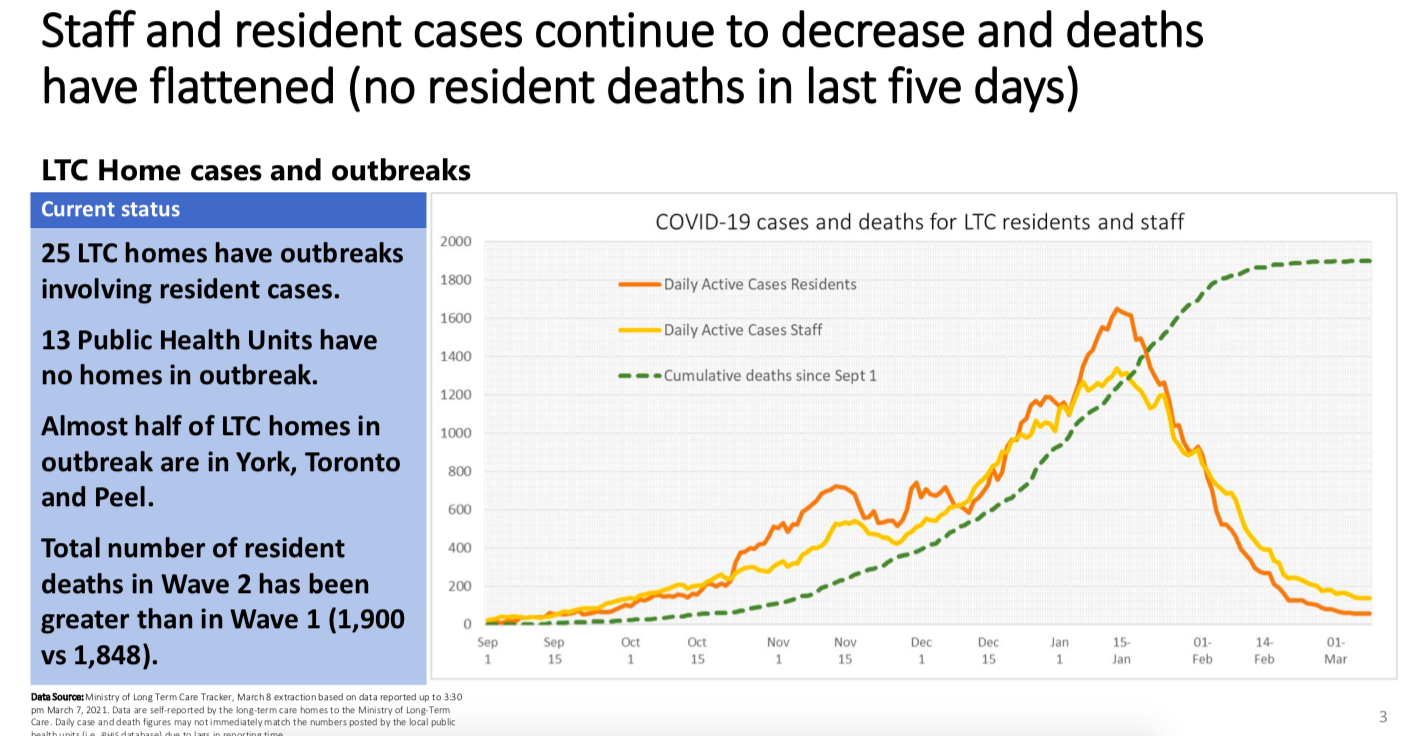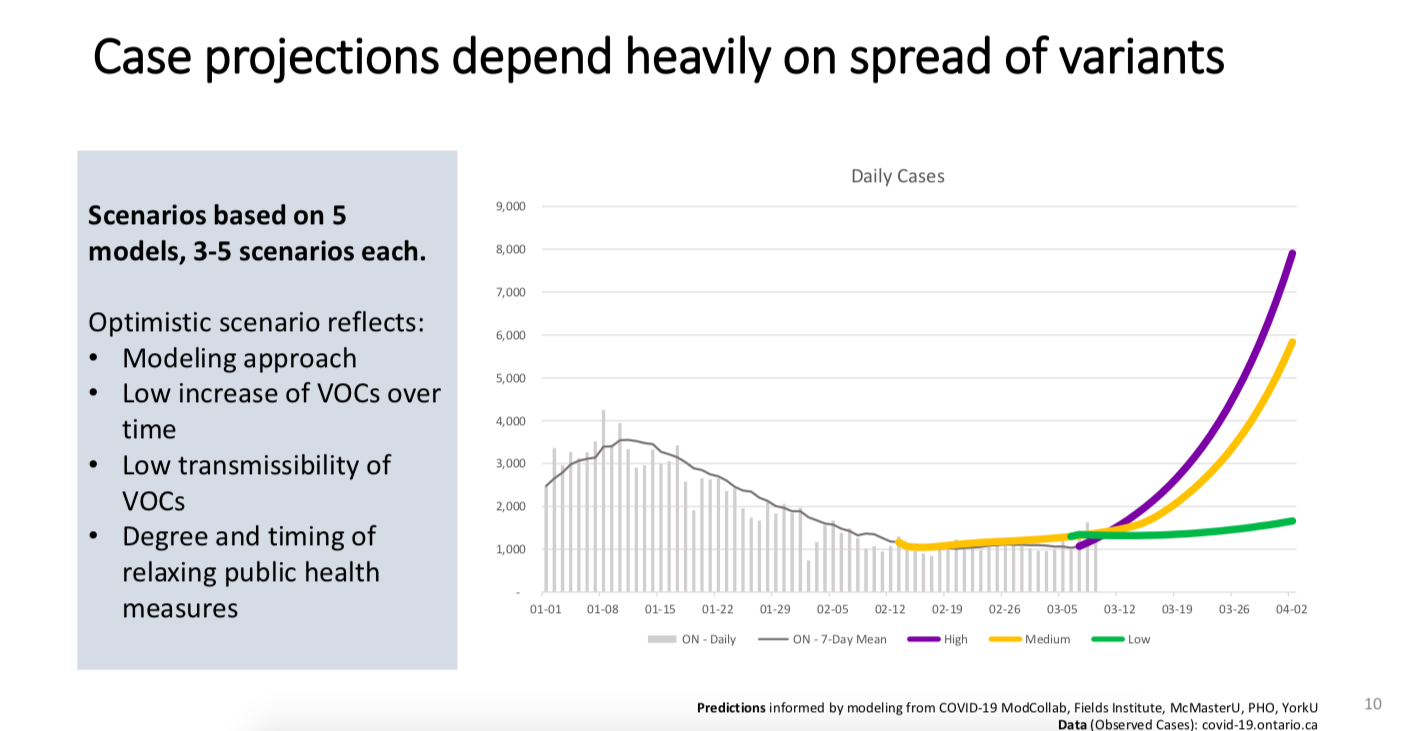Ontario residents' behaviour "critical" to determine quality of summer: health officials

Ontario health officials said that residents’ behaviour in the next few weeks will be “critical” in determining the quality of the summer.
On Thursday, Dr. Adalsteinn Brown, the co-chairman of Ontario’s COVID-19 Science Advisory Table, and Dr. David Williams, chief medical officer of health, provided the update.
Currently, Brown said that progress on COVID-19 has stalled with declines in community cases and test positivity levelling off. However, cases are increasing in most public health units as there is a rise in mobility — all 34 regions have re-entered Ontario’s colour-coded reopening framework.
Because of this, most regions have passed the Orange-Restrict Zone.

Government of Ontario
Variants of concern are also continuing to spread across the province.
“Our ability to control the rate of spread will determine whether we return to normal or face a third wave of infection. We know what works: continued masking and distancing are essential to controlling variants of concern,” Brown said.
- See also:
The health official noted that in long-term care, staff and resident cases continue to decrease and deaths have flattened — there have been no deaths in the last five days.

Government of Ontario
While the long-term care situation is heading in a positive direction, there is an increase in postponed care, missed screenings, and preventative care. This means there will be “a substantial and prolonged surge in need for care across sectors.”
“Our actions now affect our ability to access care later,” Brown said.
There is now a cumulative backlog of 227,410 surgical cases and cancer screenings have declined substantially with “long-term consequences for cancer outcomes.”
When looking at case projections, they depend “heavily” on spread of the variants. The health officials released three scenarios with the low-range predicting fewer than 2,000 cases daily by early April, the medium-range shows a possible increase of almost 6,000 daily cases, and the high-range shows a possible increase of almost 8,000 daily cases.

Government of Ontario
In order to have a safe summer, Brown said there must be control over cases, and vaccinations must be increased as it offers “the greatest impact on beating the pandemic.”
The health officials also showed real-world evidence to demonstrate that vaccines reduce infection and decrease transmission.
Over one million have received one dose of the COVID-19 vaccine, with 281,714 people fully vaccinated. The province has begun vaccinating those 80 years and older and will begin vaccinating those aged 60 to 79 starting in April.

